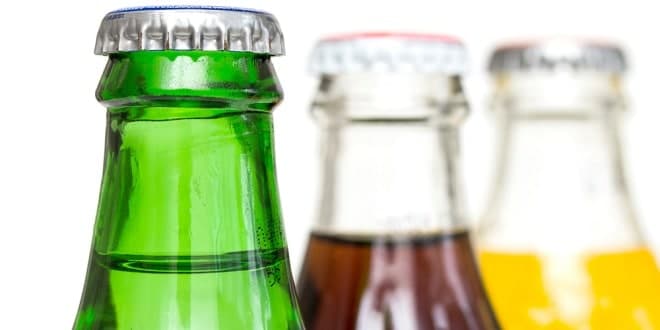Does Drinking Beverages with Added Sugars Increase the Risk of Overweight?
Does Drinking Beverages with Added Sugars Increase the Risk of Overweight?
Overweight and obesity are health problems that affect a large number of people in the United States. To reduce body weight, a person must decrease the amount of calories he or she consumes while maintaining or increasing physical activity. The Dietary Guidelines for Americans 20051 indicates that the healthiest way to reduce caloric intake is to decrease one’s consumption of added sugars, fats, and alcohol, all of which provide calories but few or no essential nutrients. One way for people to reduce their intake of added sugars and help manage their weight is to reduce the amount of sugar- sweetened beverages they drink.
This research brief explores the relationship between drinking beverages with added sugars and weight management.
An overview of the following topics is provided:
✤ Added sugar and the contribution of sugar-sweetened beverages to caloric intake.
✤ A research review of the science underlying the hypothesis that sugar-sweetened beverages are associated with body weight.
✤ Evaluations of interventions for reducing sugar- sweetened beverage intake.
✤ Contextual factors that might influence what we drink.
✤ Further research needs.
✤ Research to Practice: Suggestions for incorporating the research findings into our daily lives.
Added Sugar and the Contribution of Sugar-Sweetened Beverages to Caloric Intake
Added Sugars and Sugar-Sweetened Beverages in the American Diet
A large proportion of added sugar in the American diet comes from the consumption of sugar-sweetened beverages. Using nationally representative data, Guthrie and Morton estimated that in 1994–1996, approximately one-third of added sugar intake came from regular (non-diet) carbonated soft drinks and 10% came from regular fruit drinks/ades and punches (not 100% juice). Soft drink intake has increased dramatically since the 1970s. One study found that the percentage of youth who consumed any carbonated soft drinks (regular and low calorie) increased from 37% in 1977–1978 to 56% in 1994–1998, a 48% increase. Another study reported that among adults, consumption of carbonated soft drinks (regular and low calorie) and fruit drinks/ades (not 100% juice) increased by at least 100% between 1977–1978 and 1994–1995. In 1996, Americans aged 2 years and older consumed 83 more calories of added sugar per day than they did in 5 1977. Of these additional calories, 54 came from carbonated soft drinks (regular and low calorie) and 13 5 came from sugared fruit drinks.
…


